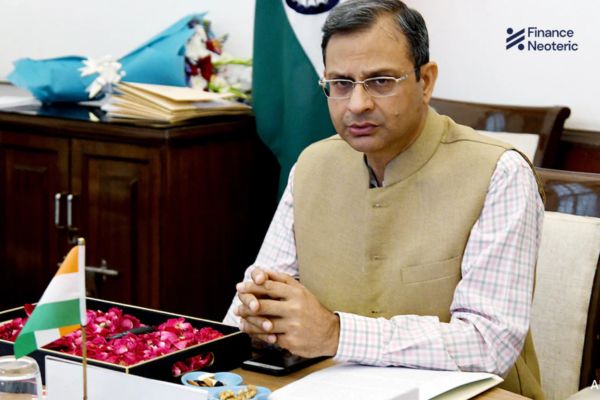RBI Reviewing Bank Shareholding Norms, Confirms Governor Sanjay Malhotra

The Reserve Bank of India (RBI) is reviewing its shareholding and licensing norms for banks, Governor Sanjay Malhotra said in an interview with The Times of India, indicating a potential shift in the regulatory framework following recent foreign investment developments in the sector.
The move comes just weeks after Japanese financial giant Sumitomo Mitsui Banking Corporation (SMBC) signed a definitive agreement to acquire a 20% stake in Yes Bank marking the largest cross-border M&A deal in India’s financial services sector.
Currently, India permits up to 74% foreign direct investment in private sector banks. However, a single financial institution is generally restricted from holding more than 15% equity unless granted a specific regulatory exemption. Promoters are also required to gradually pare down their holdings to 26% over a 15-year period. Additionally, both domestic and foreign investors are subject to a 26% cap on voting rights.
Also Read:- OpenFX Emerges from Stealth with $23 Million Funding to Disrupt $200 Trillion FX Market
“We are examining this in totality as part of our internal review. All aspects of the eligibility conditions will be looked into,” Governor Malhotra said when asked about the possibility of raising shareholding limits—particularly for foreign banks seeking deeper participation in the Indian banking space.
He added that the central bank is also assessing the need to scale up banks to meet the growing demands of the Indian economy. While Malhotra declined to comment on reported issues at IndusInd Bank, he emphasized that the overall banking system remains stable. “The system is very robust and strong. There are no systemic risks or concerns,” he noted.
Malhotra said the Indian economy is demonstrating resilience despite global geopolitical tensions and trade-related challenges. He confirmed that India is actively engaged in discussions with the United States and around 75 other countries on trade matters.
Discussing inflation, the governor explained that global dynamics could lead to both upward and downward pressures. “There will be imported inflation due to higher global prices, but that may be offset by weaker global demand, which typically leads to softer prices. The latter has a higher impact, leading to overall lower inflation,” he said.
Also Read:- Kotak Mahindra Bank Appoints Surajit Deb as President and CTO for Group Subsidiaries and Private Bank
On liquidity management, Malhotra reiterated the RBI’s commitment to maintaining sufficient liquidity in the banking system to ensure smooth transmission of monetary policy decisions. “We will continue to provide liquidity to ensure effective transmission across the money, bond, and credit markets,” he said.
The RBI’s review signals a potential easing of investment rules that could pave the way for greater foreign participation and consolidation in India’s fast-growing banking sector.
Stay connected with FinanceNeoteric on WhatsApp Channel for expert coverage and in-depth financial stories.
Disclaimer: This post is for general informational purposes only. It does not constitute financial advice. Please consult a qualified professional before making financial decisions.



















